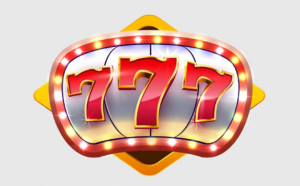- Blockchain is the future of the entertainment industry.
- The value of blockchain in the entertainment industry is rising with each passing day.
Blockchain has undoubtedly risen to great prominence. In recent times, we have observed it becoming involved in almost every aspect of our lives such as digital transformation, finance, supply chain, and healthcare, to name a few.
With its unstoppable run, blockchain has also made its way to the entertainment industry. It promises to provide, use, and pay for entertainment such as films, television, music, etc. in a more revolutionized manner.
How is Blockchain changing the entertainment industry?
It is no surprise that blockchain technology has been in use in the entertainment industry. The entertainment industry refers to entertainment media like films, music production and creation, and television.
As we learned before, blockchain can change the way in which creators and consumers provide, enjoy, and pay for entertainment types. Additionally, one of the biggest upsides to blockchain is that it increases the security and transparency of transactions. Moreover, it gives increased control over the supply chain and reduces the chances of copyright infringement.
According to a report by market research future, the value of blockchain in the media and entertainment industry is expected to reach close to $11.8 Billion by 2030 with a CAGR of 30.40% from 2021 to 2030. The report also reveals that North America and Asia Pacific are dominating the market.
Ways in which Blockchain can Benefit the Entertainment Industry
- Digital Asset Security – blockchain technology can be used to instill trust in the consumer by ensuring the security of the distribution data against malicious actors in the market of entertainment products. They can restrict the distribution to genuine distributors like publishers, advertisers, agencies, customers with pre-paid status, and tech providers. This can be done by encrypting their products into digital data.
Moreover, with the help of smart contracts, which execute automatically when the pre-defined conditions are fulfilled, the risk of breach of data can be eliminated. Furthermore, to maintain transparency, the transaction history is made available to the participants of the network.
- Opening up new revenue streams – apart from enhancing security, transparency, and efficiency of the supply chain of the products, blockchains can accelerate the revenue streams for creators by allowing them to provide value-added digital content to select customers. By providing relevant and on-point information to the audience, it aims to improve user experience. This practice can result in increased rates of return in the long run.
Ways in which blockchain technology can be applied to the Entertainment Industry
- The Fair Flow of Payments – if we talk about the music industry, then, before blockchain, there were many intermediaries involved in delivering music to the listeners. Consequently, the original artist got only 12% of the revenue from their work. However, blockchain can reduce or eliminate the involvement of third parties and can ensure that all of the revenue goes to the creator.
- Usage-based payment models – a blockchain offers the facility of micropayments, where the user is only supposed to pay smaller amounts for smaller services as compared to centralized entertainment, where both the artist and the consumer lose money.
Conclusion
With the increasing exposure of blockchain in the media and entertainment industry, we have witnessed a lot of changes in how content is produced, distributed, and consumed. It can be said with absolute certainty that blockchain technology will have an important role to play in shaping the future of entertainment and media.





